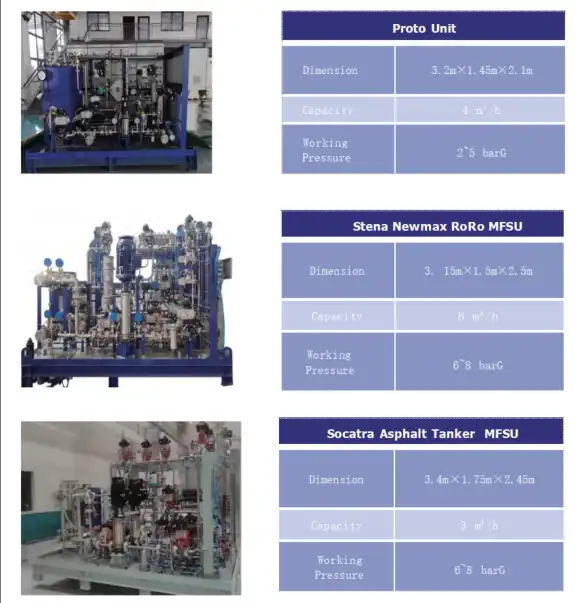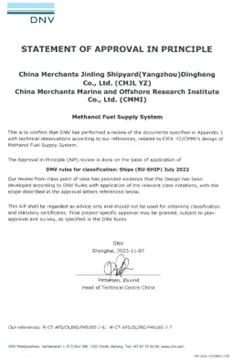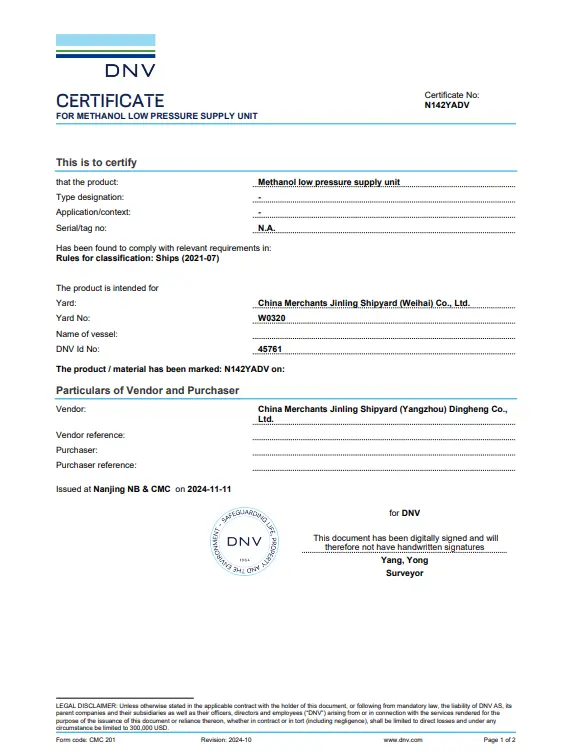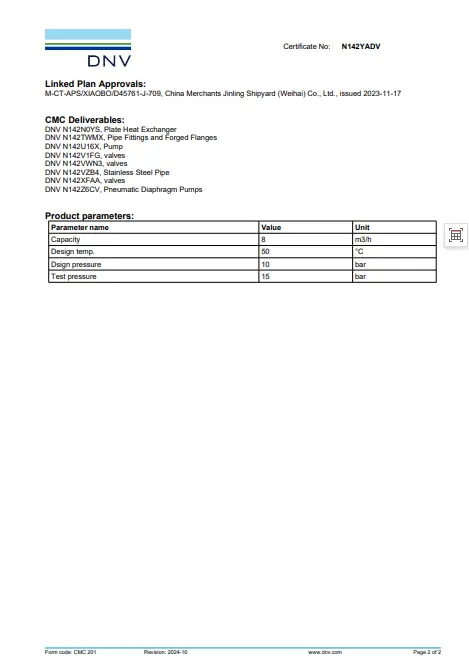Methanol Fuel Handling System
Overview of the Methanol Fuel Handling System (MFSS)
The Methanol Fuel Handling System (MFSS) encompasses essential subsystems, which include the primary supply unit, filling and transfer modules, auxiliary support systems, as well as safety and control components. We offer both independent design and manufacturing of MFSS units, in addition to fully customized solutions tailored to meet the specific needs of our clients.

WHY CHOOSE US?
1. In-Depth Industry Expertise – Our team possesses extensive experience in dual-fuel vessel construction, chemical tanker engineering, liquefied gas carrier systems, and other related marine technologies, establishing us as a trusted leader in this domain.
2. All-Inclusive Solutions Available – We provide comprehensive systems, comprising Methanol Fuel Handling System (MFSS), LNG Fuel Gas Supply Systems (FGSS), Ammonia Fuel Supply Systems (AFSS), and LPG Cargo Handling Systems (CHS).
3. Proven Success Record – Our history highlights the successful delivery of 19 clean fuel handling systems, including two MFSS skids for the Stena RoRo projects, demonstrating our commitment to operational excellence and adherence to the highest quality standards.
4. Technological Innovators – We are at the forefront of developing methanol fuel systems in the domestic market, having initiated our research, development, and commercialization efforts before major industry competitors in late 2022.
5. Lifecycle Support – We provide comprehensive service coverage, ranging from initial conceptual design and production to installation and deployment, along with ongoing support following commissioning.
Product Specifications

Product Overview
1. METHANOL DELIVERY UNIT – This unit ensures that methanol parameters such as pressure, temperature, flow rate, and purity comply with engine manufacturers' specifications. It guarantees operational stability during load variations and transient conditions throughout startup and shutdown cycles.
2. BUNKERING & TRANSFER MODULE – Developed to align with SOLAS-IBC Code standards for chemical tankers, this subsystem addresses the hazardous characteristics of methanol, including its low flashpoint, toxicity, and corrosiveness, throughout storage, transfer, and bunkering procedures.
3. ADAPTABLE CONFIGURATION – The modular design allows for versatile installation options, permitting either standalone units or integrated system components that can accommodate various vessel layouts.
4. COMPLIANCE WITH SAFETY STANDARDS – With a dual-certified design, it meets both SOLAS-IBC chemical safety protocols and IGF Code standards for low-flashpoint fuel systems, ensuring full regulatory compliance.
5. CUSTOM INTEGRATION OPTIONS – Tailored configurations are available for both newbuilds and retrofits, optimized according to each vessel's specific operational requirements.
QUALITY CERTIFICATION
DNV AIP Certified Design



INSTALLATION PROCEDURE
1. A thorough review of the vessel documentation and interface requirements will be performed, addressing any technical questions prior to the commencement of installation.
2. Installation tools and equipment will be prepared, and necessary safety measures will be implemented before beginning the installation process.
3. Pre-assembled MFSS modules will be delivered to the installation site using suitable lifting and positioning equipment.
4. Foundations of the modules will be securely attached to the vessel structure, ensuring accurate alignment and compliance with flatness and stability specifications.
5. Connections for methanol transfer lines, auxiliary piping, and control cabling will be established, ensuring leak-tightness and electrical continuity.
6. Verification of subsystems and integrated functional testing will be conducted to confirm the proper performance of bunkering operations, fuel delivery efficiency, and safety interlock mechanisms.
For more product information about Methanol Fuel Handling System, please leave a message below.
